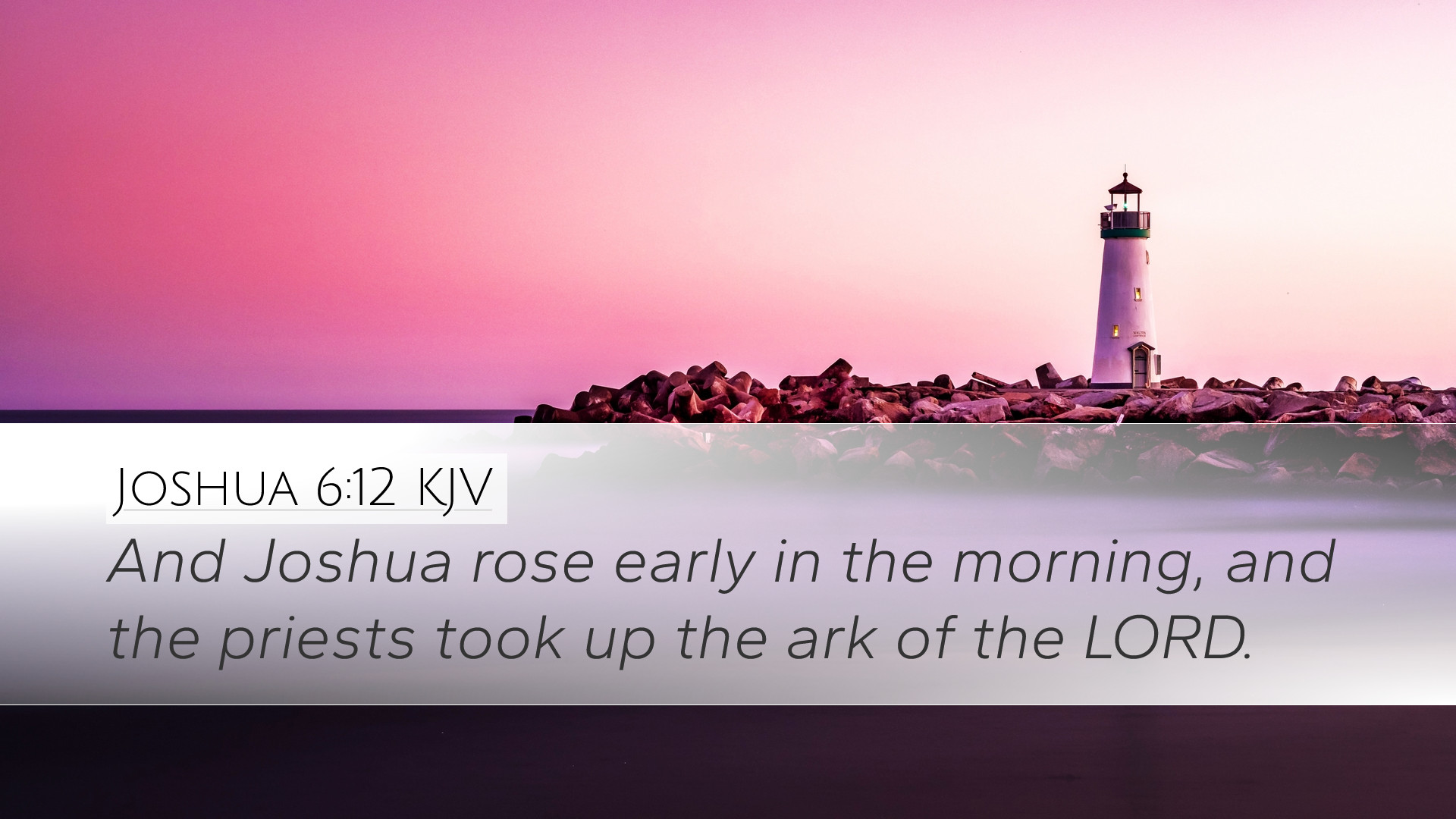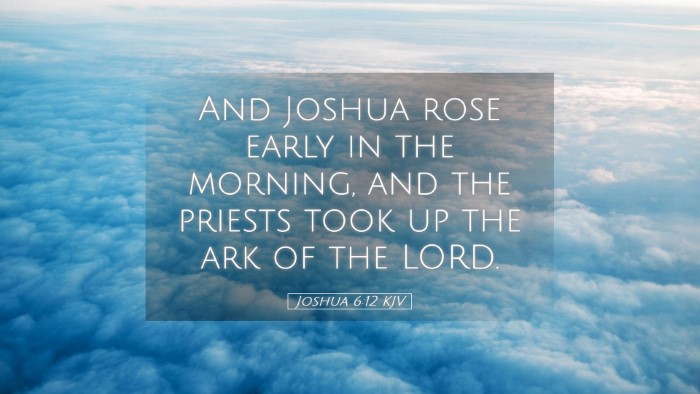Commentary on Joshua 6:12
Joshua 6:12 states: "And Joshua rose early in the morning, and the priests took up the ark of the LORD." This verse marks an important moment in Israel's conquest of Jericho, providing insights into leadership, divine instruction, and the fulfillment of God’s promises.
Introduction
In this passage, we observe a critical instance of obedience amidst the backdrop of divine strategy. The verse emphasizes early rising for sacred duties, which is pivotal in maintaining a heartfelt devotion and commitment to God's commands.
Matthew Henry's Commentary
Matthew Henry notes the significance of Joshua's leadership in this moment. His early rising points to zeal and readiness to obey God's command:
- Leadership through Example: Joshua exemplifies diligence. The act of rising early symbolizes a crucial aspect of his character—being attentive and responsive to God's will.
- Priestly Roles: The priests' involvement in carrying the ark underlines the sacred responsibility they hold. It reinforces the integral connection between worship and warfare as Israel prepares for conquest.
Albert Barnes' Commentary
Albert Barnes provides further insights regarding the spiritual significance of the Ark of the Covenant in this context:
- Presence of God: The Ark symbolizes God's presence among His people. Barnes highlights that the act of taking up the Ark signifies not just obedience but also the recognition of God's ultimate authority in Israel's endeavors.
- Preparation for Battle: By emphasizing the Ark's role in their military strategy, Barnes argues that it illustrates a broader truth: reliance on divine assistance in human efforts.
Adam Clarke's Commentary
Adam Clarke elaborates on the preparations and the implications of this verse as it relates to obedience:
- Early Rising: Clarke emphasizes the importance of beginning each day with a commitment to God’s plans, interpreting Joshua's early start as a model for spiritual readiness.
- Symbolism of the Ark: Clarke detail the Ark’s representation as the covenant between God and Israel, illustrating how this sacred object not only guided their actions but also provided assurance of divine guidance.
Theological Implications
The passage presents rich theological themes:
- The Importance of Obedience: The narrative reflects a continual theme throughout Scripture—the necessity of obedience to God’s instructions as a precursor to success.
- God’s Sovereignty: In aligning military tactics with divine presence, this verse underscores the belief in God’s active participation in Israel’s history, reminding the faithful of His overarching sovereignty.
- Spiritual Warfare: The juxtaposition of physical and spiritual elements here suggests that victories in life are contingent upon one’s proper relationship with God—a theme echoed in the New Testament as well.
Practical Applications
As we reflect on Joshua 6:12, several applications emerge for contemporary believers:
- Diligent Preparations: Like Joshua, believers are called to prepare themselves daily for the challenges they face, fostering a routine that prioritizes spiritual growth.
- Importance of Corporate Worship: The involvement of the priests with the Ark highlights the communal aspect of faith; it encourages the faith community to come together in worship as a source of strength.
- Trusting God’s Presence: As the Ark symbolized God’s presence, modern believers are reminded to seek God in every endeavor, entrusting their paths to His guidance.
Conclusion
Joshua 6:12 offers rich insights into the character of a faithful leader and the importance of divine guidance. The combined perspectives from Matthew Henry, Albert Barnes, and Adam Clarke enrich our understanding, encouraging readers to emulate Joshua’s dedication and to actively seek God’s presence in their lives. As we navigate our spiritual journeys, may we rise early, prepared to honor God in all our endeavors, recognizing that victory is found through obedience and faith in Him.


